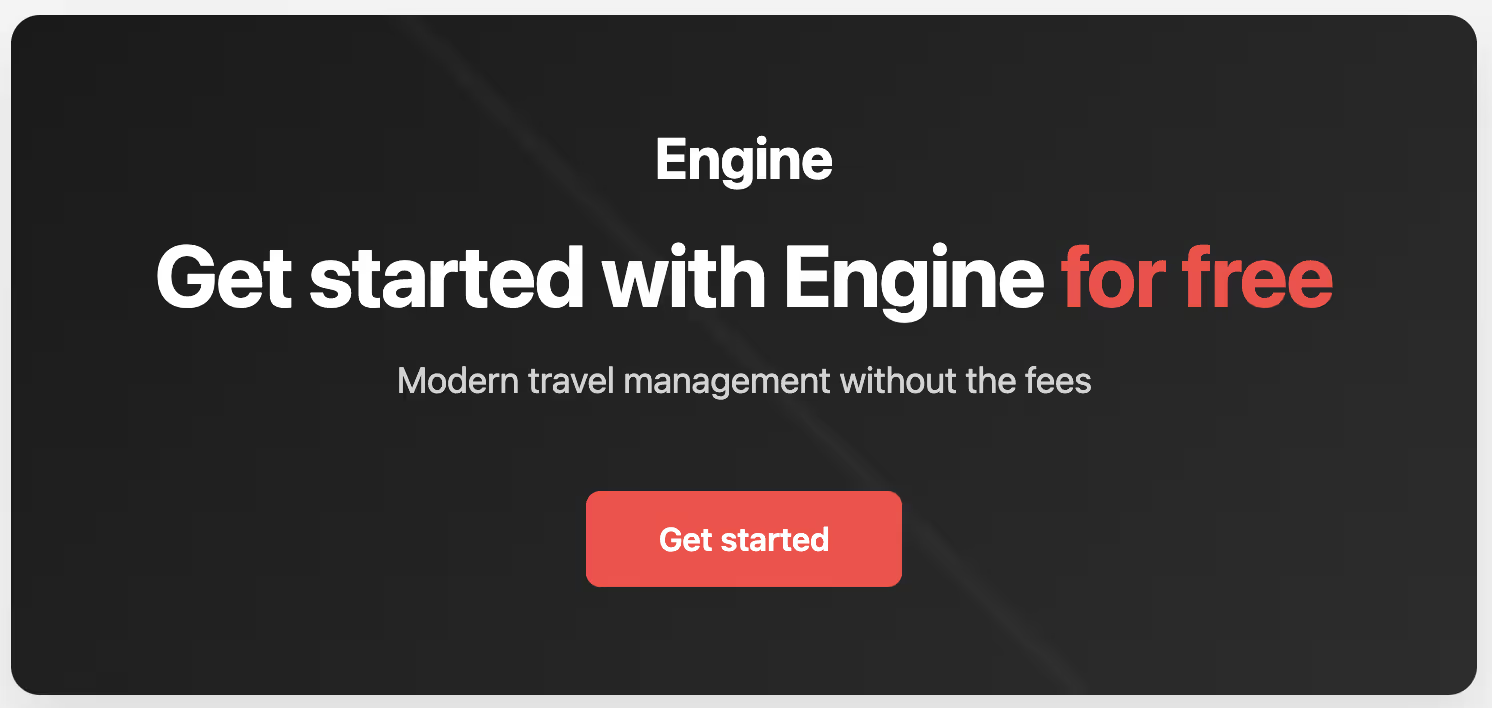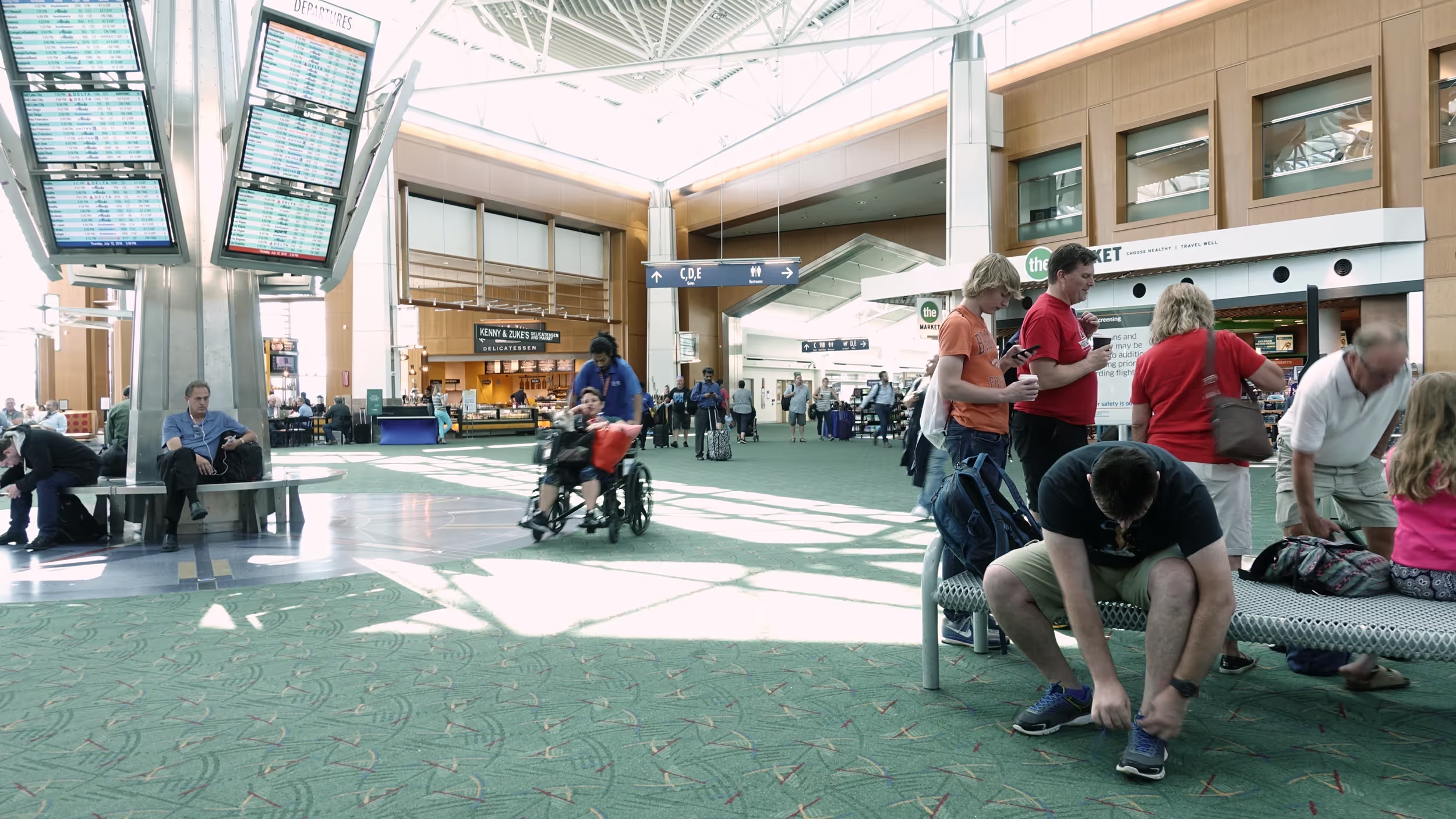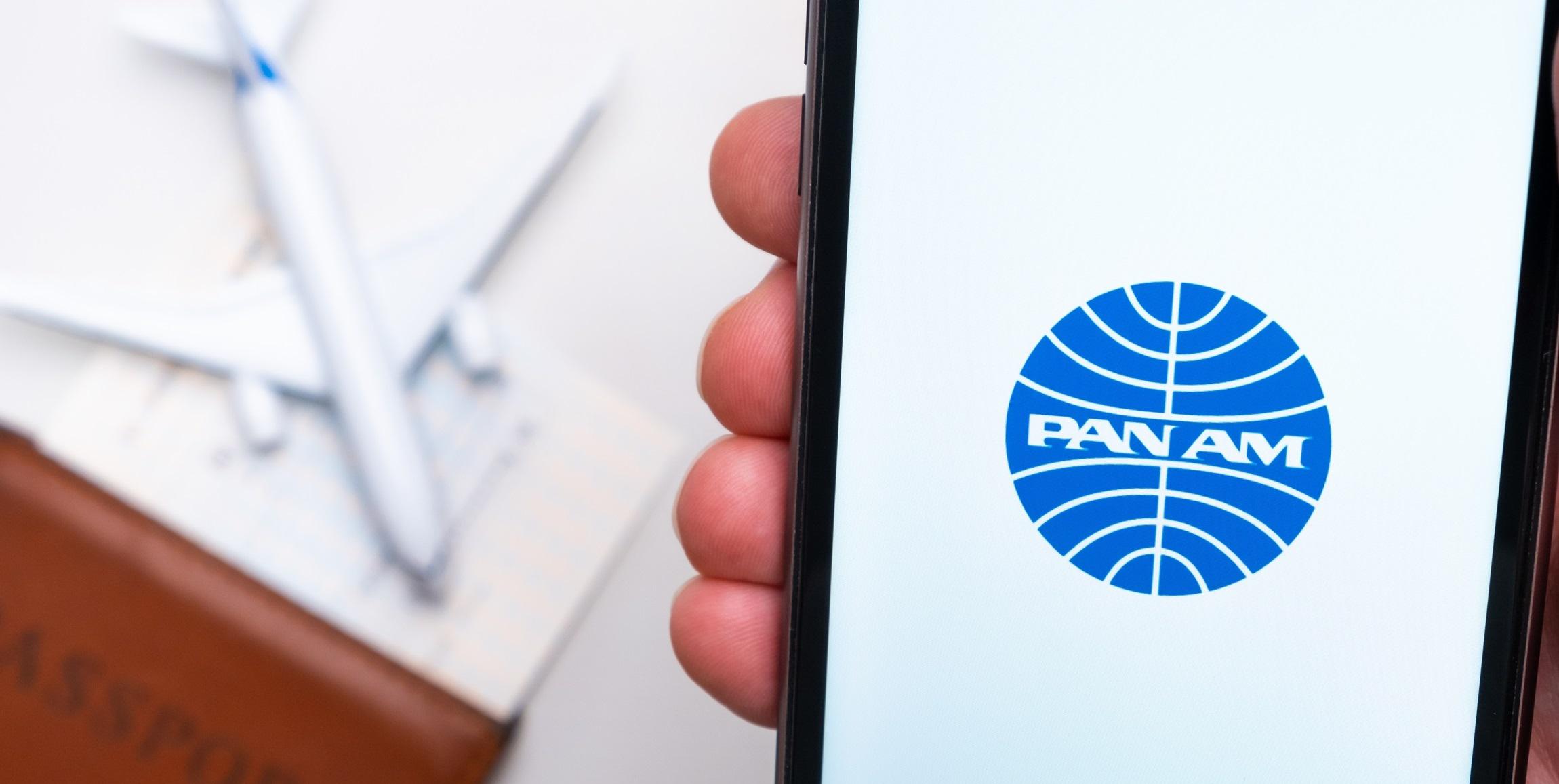The Smart Booking Guide to Business Travel Accommodation

Your team's quarterly meeting is next month. Twelve people need rooms in Chicago. You're already dreading the next two hours: comparing hotel rates across multiple sites, dealing with separate credit card charges, and praying nobody's reservation gets lost.
Most business travel booking wastes time and money. Here's how to fix it.
The Real Cost of Scattered Booking
Finance teams see this problem clearly. One customer told us they had 47 different credit card charges in a single month, all from business travel. Each charge required separate reconciliation. Each receipt needed manual coding by project.
Your current approach probably looks like this: Check booking sites for rates, compare prices across platforms, call hotels directly for group discounts, manage multiple confirmations, then spend hours sorting receipts by project and department.
The hidden cost isn't just the room rates. It's the time you waste on administrative work instead of managing actual business.
Travel managers tell us they spend 15-20 hours per month just on hotel logistics for a team of 25 people. That's half a week lost to booking coordination, receipt management, and vendor reconciliation.
The problem gets worse when business priorities shift. Last-minute client meetings, project extensions, or cancelled conferences require booking modifications.
Consumer travel platforms charge hefty change fees or offer no flexibility at all. Your team ends up eating costs for unused rooms while booking new accommodations elsewhere.
Book Business Travel for How Project Teams Work
Different teams have different travel patterns, and your booking approach should match how your people work. Here's what matters for the most common business travel scenarios.
Consulting and Professional Services
Consulting teams travel for client work, requiring hotels near client offices with reliable wifi and meeting spaces. These trips often extend unexpectedly when project scopes change or clients request additional work sessions.
Your booking needs to handle these realities. Static reservations that can't be modified waste money when projects run long. Scattered booking approaches make it impossible to track project profitability when hotel costs aren't properly allocated.
Sales Team Requirements
Sales professionals need flexibility above all else. Client meetings get rescheduled, territory assignments change, and deal timelines shift based on customer priorities.
Traditional corporate travel platforms often force sales teams into rigid approval workflows that slow down customer-responsive travel. The right system combines policy compliance with modification flexibility, so representatives can adjust plans without derailing client relationships.
Executive Travel Considerations
Senior executives require accommodation booking that aligns with business objectives rather than just cost control. Their travel often involves confidential deals, board meetings, or partnership discussions where location discretion and service quality matter as much as expense control.
Executive travel should connect with calendar systems, provide options for extended stays when negotiations continue, and handle automatic expense categorization for tracking business initiatives.
What Teams Really Need (Not What Vendors Promise)
Travel managers don't need another dashboard showing booking analytics. They need tools that work as simply as the other business software they rely on. Here's what matters when you're coordinating travel for teams.
Group Reservations That Don't Require a PhD
Booking hotels for 12 people one room at a time wastes hours you don't have. Look for platforms that handle group reservations with a few clicks, not 12 separate transactions.
The catch: most "group booking" features only work in major metropolitan areas. If your team travels to secondary markets or small cities near client locations, make sure your platform has inventory where you actually need rooms.
Cost Tracking Without Spreadsheet Gymnastics
Every hotel night should tie back to a specific project or department. If your current system can't tell you exactly what Team A spent on the Johnson project versus the Rodriguez client work, it's not doing its job.
Tag bookings by project, department, or cost center during the reservation process. Finance teams get the data they need without manual coding after the fact. Custom fields should extend beyond basic cost center coding – track by client name, project phase, team size, or any other dimension that matters for your business analysis.
Modification Flexibility When Business Priorities Shift
Business priorities change. Equipment breaks. Client meetings get rescheduled. Your accommodation platform should handle modifications without bleeding money on cancellation fees.
Look for platforms offering refund guarantees when plans shift. When client meetings get cancelled, project timelines shift, or team sizes change, modification protection prevents accommodation changes from becoming profit drains.
Centralized Billing That Eliminates Receipt Collection
Replace individual credit card charges with consolidated monthly invoicing. One customer switched from 20+ separate charges to a single monthly bill, cutting their reconciliation time by 75%.
Direct billing also improves cash flow management. Instead of fronting hotel costs across multiple credit cards, your company receives one monthly invoice with payment terms that align with your cash management cycles.
Policy Enforcement That Happens Automatically
Set spending limits and approval workflows that work automatically. Your team books within guidelines without constant oversight.
Policy automation should handle common scenarios intelligently: different per-diem rates for different cities, automatic approvals for frequently visited client locations, and escalation procedures for unusual circumstances. The key is building policy guardrails that work invisibly.
Stop Juggling Multiple Booking Sites
Use a single platform designed for business needs. This means negotiated corporate rates, group booking capabilities, and expense tracking built for how businesses operate. Here's how to make the switch without disrupting your current operations.
Start with High-Volume Routes
Begin with destinations where your team travels frequently. Test the platform's group booking and billing features on routes you know well.
If your team visits the same 3-4 cities regularly, negotiated rates and easier booking processes yield immediate savings and efficiency gains. Success on familiar routes builds confidence for broader platform adoption.
Connect Your Finance Systems
Your accommodation booking platform should connect with financial management systems beyond basic expense reporting. When hotel expenses flow automatically into your financial systems with proper coding and approval trails, finance teams can focus on analysis rather than data entry.
Look for platforms that provide API access for automated data transfer, support your chart of accounts structure, and offer configurable approval workflows that match your existing financial controls.
Keep Your Team's Loyalty Benefits
Frequent business travelers shouldn't lose personal rewards for following company policies. The best platforms ensure points post correctly, elite benefits apply automatically, and upgrade opportunities remain available.
This isn't just about keeping travelers happy – it's about policy compliance. If following company booking policies costs people their hotel status and upgrade opportunities, they'll find workarounds.
Get Real-Time Visibility
Know where your team is located and track expenses as they happen. Operations managers need current information, not reports from last month.
Real-time visibility serves multiple business purposes beyond expense tracking: emergency contact capabilities, travel safety monitoring, and project coordination all benefit from knowing current team locations.
Skip the Demo Fluff – Here's What Works
Skip the bells and whistles that look good in demos but don't work in the field. Here are the features that keep business travel running smoothly.
24/7 Support That Handles Emergencies
When your team's flight gets delayed and they need to extend their stay, support should be available immediately. Business travel problems don't happen during business hours.
Professional-grade support goes beyond basic booking assistance. Look for platforms that handle emergency rebooking, coordinate with hotel partners for last-minute changes, and provide dedicated account management for complex situations.
Mobile Capabilities for On-the-Go Changes
Business travelers need mobile capabilities that handle booking modifications during travel disruptions. Flight delays, meeting changes, and project extensions all require immediate accommodation adjustments.
Mobile functionality should include full booking modification capabilities, real-time support access, and offline functionality for areas with poor connectivity. Limited mobile capabilities often force travelers back to desktop booking or phone-based support.
Volume Negotiation Power
Track your organization's total accommodation spend across all departments and travelers. Companies spending $50,000+ annually on accommodations often qualify for preferred rates that aren't available through standard booking channels.
The challenge is consolidating spend visibility when bookings are scattered across multiple platforms and individual credit cards. A unified platform gives you the data to negotiate better rates.
Meet Industry-Specific Booking Needs
Your industry affects your accommodation requirements more than you might think. Here's what works for the most common business travel scenarios.
Technology and Software Companies
Development teams traveling for client implementations need extended stay options. Sales teams require accommodations near tech hubs with reliable connectivity for virtual demonstrations.
Tech companies benefit from accommodation platforms that connect with project management tools like Jira or Asana. When hotel costs automatically associate with specific development sprints or client implementations, project profitability analysis becomes more accurate.
Financial Services and Banking
Client meetings, audit support, and compliance reviews require accommodations that support secure communications and confidential document handling.
Banking teams need accommodation booking that aligns with compliance frameworks. Expense tracking must meet audit standards, vendor relationships require due diligence documentation, and booking modifications need approval trails that satisfy regulatory oversight.
Healthcare and Life Sciences
Medical device companies need accommodations near hospitals for training and implementation support. Conference attendance and continuing education create unique group booking requirements.
Healthcare accommodation booking must handle group bookings for conference attendance, extended stays for medical education, and emergency travel for critical support situations.
Travel Booking Without Disruption
Making the switch to business-focused accommodation booking doesn't have to disrupt your current operations. Here's how to implement changes that stick without creating headaches for your team.
Test with Real Projects: Don't evaluate platforms with hypothetical scenarios. Book rooms for a real team at a real client location. See if the system handles the modification when the timeline changes (it will).
Finance Team Buy-In: Connect your new booking platform with existing accounting systems from day one. Custom fields should map directly to your current cost center structure. If finance can't easily get the data they need, the platform won't work long-term.
Traveler Adoption: Your team should be able to book accommodations as easily as they book everything else. Platforms requiring extensive training create more problems than they solve. If your team can't figure out basic booking without training, find a different platform.
Avoid These Mistakes: Don't assume consumer travel platforms will work for business needs – they lack group booking, centralized billing, and expense tracking by project.
Don't focus exclusively on room rates while ignoring modification policies – business travel plans change frequently. Don't treat all business travel the same – sales teams need different accommodation approaches than consulting teams.
Track What Matters: Measure time spent on travel administration per booking, average cost per room compared to previous methods, and traveler satisfaction with booking processes.
Companies using smart booking approaches typically see 20%+ cost savings and eliminate hours of weekly administrative work.
Business Travel That Doesn’t Require a PhD
Book your next team's travel with Engine and see the difference immediately. No training required. No per-user fees. No hunting receipts from job sites.
Your team is building client relationships, closing deals, and delivering projects on schedule. Hotel coordination should be the easiest part of your job, not the most frustrating.
Test Engine with your next project. Book rooms for a real team at a real client location. When the timeline changes (it will), see how our platform handles modifications without penalties or paperwork.
Ready to see how Engine handles business travel accommodation? Contact our team to test the platform with your next project. No sales presentations about features you don't need – just a straightforward look at how we solve the actual problems you face every day.











.jpg)



.avif)









.jpg)









![What is an OBT? [+ Why They Matter]](https://cdn.prod.website-files.com/66a41388b1be9ba182f1e80c/66f97c4190ac5e26bea90c05_66a41388b1be9ba182f1efc0_online-booking-tool.avif)








